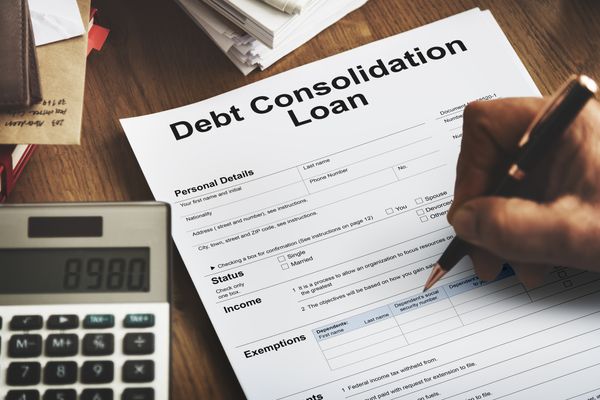Debt is a common financial responsibility that many individuals face at some point in their lives. Managing multiple loans, credit card balances, and various interest rates can become overwhelming. In such situations, debt consolidation emerges as a valuable financial strategy. This article aims to provide a clear understanding of debt consolidation, its benefits, and the different methods to implement it.
What is Debt Consolidation?
It’s a financial practice that involves combining multiple debts into a single, more manageable loan. This new loan typically comes with a lower interest rate and a more structured repayment plan. By consolidating your debts, you can simplify your financial life and potentially save money in the long run.
Benefits of Debt Consolidation
Simplified Finances
Managing multiple debts can be confusing and stressful. Debt consolidation simplifies your financial life by converting several loans into one. This means you only have one monthly payment to track, reducing the likelihood of missing payments. That’s not all, Abhay Bhutada, Poonawalla Fincorp‘s MD, says a key feature of an unsecured loan is that its funds can be used for consolidating your current debts. In addition to this, repaying your ongoing loans can also mean getting your collateral back.
Lower Interest Rates
Debt consolidation often results in a lower overall interest rate compared to the combined rates of your individual debts. This reduction in interest can save you a significant amount of money over the life of the consolidated loan.
Fixed Monthly Payments
With debt consolidation, you’ll have a fixed monthly payment that makes budgeting and financial planning more straightforward. This stability can help you regain control of your finances.
Some Methods of Debt Consolidation
Personal Loans
These unsecured loans can be used to pay off existing debts, such as credit card balances, or high-interest loans. They typically offer fixed interest rates and structured repayment terms. These can also come with many other benefits. For example, Abhay Bhutada, Poonawalla Fincorp’s MD, says that an unsecured loan can come with attractive interest rates, simple eligibility criteria, quick processing, and zero foreclosure charges.
Balance Transfer Credit Cards
Many credit card issuers in India provide balance transfer facilities. This allows borrowers to transfer outstanding balances from high-interest credit cards to new cards with lower interest rates. This enables them to focus on debt reduction without accumulating high interest charges.
Loan Against Property
Also known as LAP, this is a secured form of debt consolidation in India. It involves pledging residential or commercial property as collateral to secure a loan at a lower interest rate. LAP usually offers longer repayment tenures and higher loan amounts.
Gold Loan
Borrowers pledge gold jewelry or ornaments as collateral to secure a loan. Gold loans often come with lower interest rates compared to unsecured loans.
How to Choose the Right Method of Debt Consolidation
Selecting the most suitable method for debt consolidation depends on your individual financial circumstances. Consider the following factors when making your decision:
Interest Rates
Compare the interest rates of your existing debts with the rates offered by potential consolidation methods. The goal is to secure a lower overall interest rate.
Credit Score
Your credit score plays a crucial role in your ability to qualify for favorable terms. As per Navin Chandani, the President of Issuing Business, at Pine Labs, having a credit score of 700 or more is considered to be good. If your score is above 850, then that is seen as excellent. You can secure credit without any hassles if you have a healthy credit score. On the other hand, you may have to face some difficulties while securing the loan amount if your credit score is low.
Collateral
Assess whether you’re comfortable using an asset, such as your home, as collateral for a consolidation loan. Be aware of the potential risks involved in case you fail to make payments.
Repayment Period
Consider the length of time you want to take to pay off your consolidated debt. A longer repayment period can lead to lower monthly payments, but it may also result in higher total interest paid.
Fees and Costs
Examine the fees associated with the consolidation method. Some loans and credit cards may have origination fees, balance transfer fees, or annual fees.
Conclusion
When considering debt consolidation options, it’s essential to evaluate interest rates, fees, and repayment terms carefully to make an informed choice that aligns with individual financial goals and circumstances. Seeking advice from a financial advisor or credit counselor can provide valuable guidance in selecting the most suitable method.
